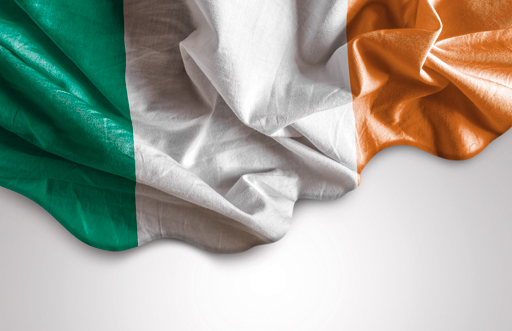Analysis

Special report: Irish pharmacy still reeling from the recession
In Analysis
It’s time to delve deeper into health discussions. Broaden your understanding of a range of pharmacy news and topics through in-depth analysis and insight.Bookmark
Record learning outcomes
A decade after the financial crash crippled the Irish economy and ushered in an era of Government austerity, PM travels to Dublin to meet with Ireland’s community pharmacy representative body and learn how the sector has coped.

Dublin-trained pharmacist Darragh O’Loughlin has been secretary general of the Irish Pharmacy Union (IPU) for five years, having held several roles in the organisation over the past 12. He sees an Irish pharmacy sector coping with the lingering effects of the 2008 economic crash, which hit Ireland and Southern Europe particularly hard.
As in England, funding is the big worry. With the Celtic Tiger economy in tatters, the Government introduced legislation in 2009 that did what O’Loughlin describes as the “unthinkable” – cutting salaries and pensions to public servants and reducing fees paid to contracted professions like general practice and pharmacy. The fees paid to the average pharmacy have fallen by about 16 per cent since 2009 and the procurement margin “has been all but eliminated”.
The economic recovery is by all accounts in full swing now, yet while some public servants have had recession-era pay cuts reversed, there has been no clear commitment to do the same for pharmacists and GPs.
Rising overheads such as staff pay exacerbate the problem. “There was a period during the financial crisis where it was possible to get costs lower but now they are creeping back up again against a backdrop of not having increased money,” O’Loughlin says.
The public is still overwhelmingly appreciative of local pharmacies – surveys reveal a satisfaction rate of 96 per cent – but this has failed to persuade the Government to budge on funding.
Many pharmacies have had to make tough staffing decisions, and while the number of pharmacies has not dropped dramatically, “we’ve seen a lot of pharmacies going through various forms of financial restructuring which often results in the business going to somebody else”.
“The public doesn’t see a problem because the pharmacy still exists,” O’Loughlin says, adding that the high public satisfaction rate is almost a double-edged sword: “Politicians don’t see that there is an issue because they don’t see that there is a problem for the public, the patient or the voter.”
Expanding role
Part of the IPU’s proposed solution is to expand the role of pharmacists – ensuring there is appropriate funding. A national minor ailments service and travel vaccinations are on the organisation’s agenda, while plans to make contraception freely available in pharmacies without a prescription have had some traction.
Recent years have seen some crucial wins for the sector, including the introduction of flu vaccinations, which have been “extremely successful”, gaining a satisfaction rate of 99 per cent.
Anxieties
Some of the anxieties voiced by UK pharmacists are not so keenly felt in Ireland. For example, there is little talk of bricks-and-mortar pharmacies being hurt by online rivals for the simple reason that it is illegal in Ireland to sell prescription medicines by mail order or online.
And while FMD has brought administrative headaches, one doesn’t sense quite the same level of panic as in the UK. “Work is proceeding and we’re satisfied that we’ll be ready to deliver it on the go-live date next February,” he says.
Supply chain issues, however, are just as vexing as in the UK. “Medicines supply chains are global now, so an issue that arises in one country will frequently arise in others.”
When asked if Irish pharmacists are concerned about Brexit, the answer is a swift, unequivocal “yes”. Medicines supply is the chief concern. Ireland is a small country, and many manufacturers treat the UK and Ireland as a single bloc for distribution purposes. “We’re worried that if there are trade barriers we will have difficulties securing medicines,” O’Loughlin remarks.

Let us do more
Pharmacists have a lot to offer, he says. With overworked, underpaid Irish GPs moving to Canada and Australia in droves, shifting some of their workload to pharmacists would be a game changer. “If you resource us better and increase our scope of practice… you will solve your GP problem because we can do a lot of the less complex work that GPs currently do.”
The Government is planning a massive restructuring of the health service that involves what O’Loughlin describes as “a decisive shift to primary care”. So the IPU is lobbying Government “very heavily” to ensure pharmacy is involved.
It won’t surprise UK pharmacists to hear that political engagement in Ireland has often been underwhelming. “We get all the right rhetoric from the politicians and sage nods from senior civil servants – but there’s no sign of them taking action.”
This intransigence means that taking the message of pharmacy’s value directly to the public is a key focus of the IPU’s 2017-2021 strategy, in the hope that this will result in political pressure.
Being business people as well as healthcare professionals, O’Loughlin says pharmacists are “used to making decisions and struggle to understand a Government and a public system that is incapable of making decisions – or unwilling to.”

